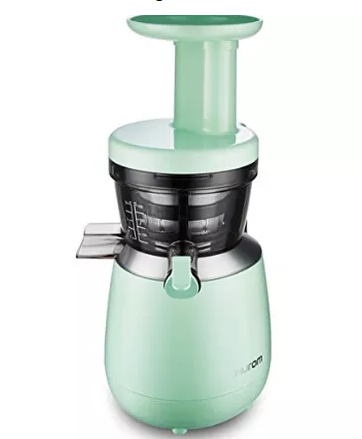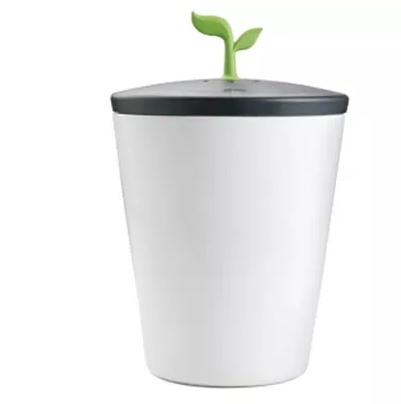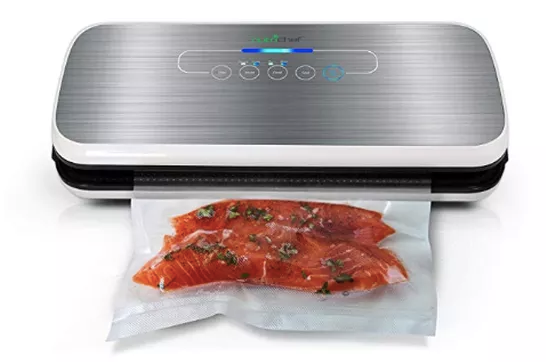American consumers waste nearly 40% of the food they buy, according to the Natural Resources Defense Council. Does this ring true in your household? If you find that plenty of produce, meat and even dry goods end up in your trash, it might be the right time to make a change.
Consider investing in these food waste solutions that help you use more of what you buy from grocery stores and lessen what you put into landfills. Pick up a few of these items to help solve your food waste problem (reducing greenhouse gas emissions and saving money in the process), and you may even gain some new habits and hobbies along the way to help you in your food waste reduction endeavors. Consumer electronics expo will share some common sense.
A juicer
Are you overambitious about organic fruits and vegetables? Maybe you stock up on fresh foods because you intend to eat healthier, but you don't always get to that fridge drawer full of produce before those foods start to go bad. A great way to tackle these challenges is to get yourself a juicer to reduce the excess food.

If space is an issue, something like this quiet and powerful Hurom juicer takes up a smaller countertop footprint than most. With a high-quality juicer, everything from apples to zucchini can be salvaged before they brown and wilt. Toss in all those overripe fruits (remove the really bad parts first), or turn a large, daunting bunch of leafy greens into just a little bit of potent, green juice -- perfect for those pears you forgot about or that bag of kale you have no energy to cook. Mix with your milk or alt-milk of choice (almond and coconut are nice options) or balance out with other milder juices like that from cucumber, celery or apples.
A compost bin
For some, a juicer is the gateway appliance to composting. With all that dried out, vitamin-stripped leftover pulp it's hard not to notice how much edible food matter you throw away. Even if you don't juice, you're likely tossing onion skins, carrot tops, herb stems, eggshells and more into the garbage from everyday cooking. If you're looking to lessen your impact on landfills, a compost bin is the way to go. Obviously, this is only doable if you have some outdoor space to work with or if you're lucky enough to live in a city like San Francisco, which provides a curbside composting program.

For those with a yard, investing in a big, basic compost bin or a space-saving rotating tumbler bin will get you started on returning your food scraps from whence they came, creating nutrient-rich soil. Check out Chowhound's guide to composting for tips on what and what not to put into your bin. Whether you DIY or have your compost picked up for composting facilities, you can either freeze your fresh food scraps until you take them out or you can get real fancy with pretty countertop bins like this one or this one. Or get cute in your efforts with a little green sprout on top. Practical and a great conversation piece for pushing your sustainable, environmental agenda on friends and family.
A vacuum sealer
If your main problem is that you so want to use that meat and produce in meals, but you can never get to cooking before it all goes bad, a vacuum sealer might be your new best friend.
The NutriChef Vacuum Sealer, for example, comes with a starter supply of vacuum bags and provides variable settings for preventing food waste in a few different ways. The most obvious use of a vacuum sealer is to remove oxygen from food -- this slows down the growth of mold and bacteria, extending the life of your groceries. Another way a vacuum sealer can help cut down on solid waste is by enabling better meal prep. The vacuum bags allow you to pack more individually sealed meals in the freezer than you can with unwieldy containers, making it easier to tackle that big bag of vegetables or the meat you buy in bulk (Costco steak, for example). Cook it all in one fell swoop, and store it away with those space-saving food-preserving bags.

Instead of just telling yourself to "do better" with food waste disposal, equip yourself with tools that'll help you fight the good fight when it comes to waste and recycling solutions. Figure out which products will work best for you and make the biggest global impact, and incorporate them into your organization and food-prep routine -- you'll find you're tossing less organic waste into the garbage and maybe even upping your fruit and veggie intake.
Source: Chowhound Staff